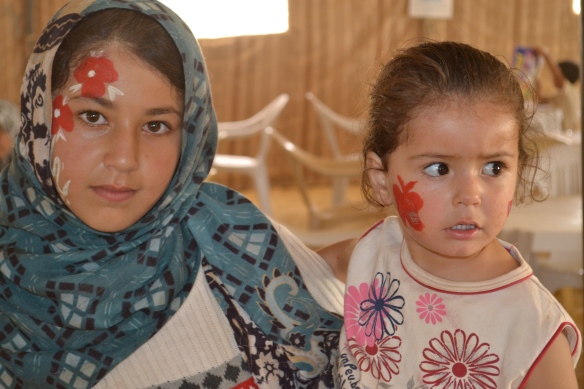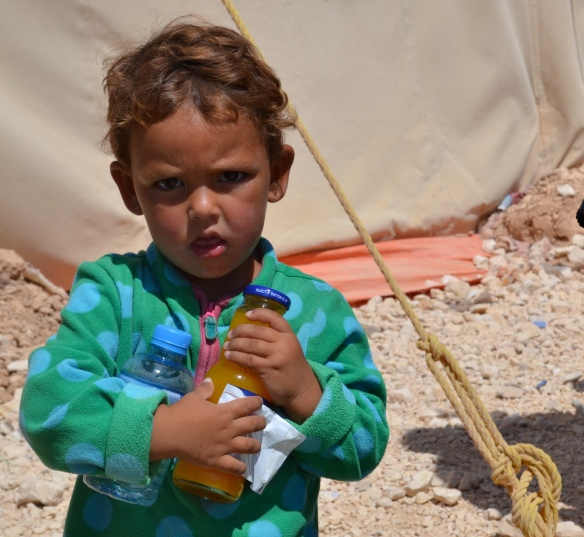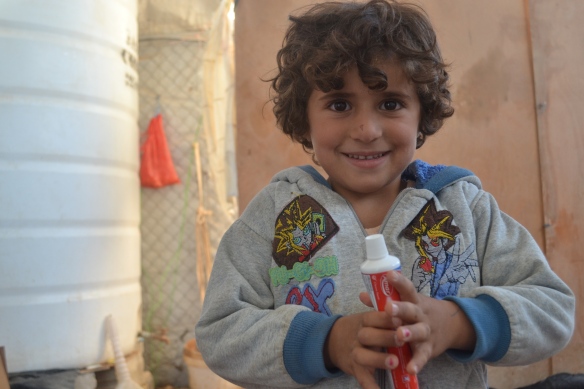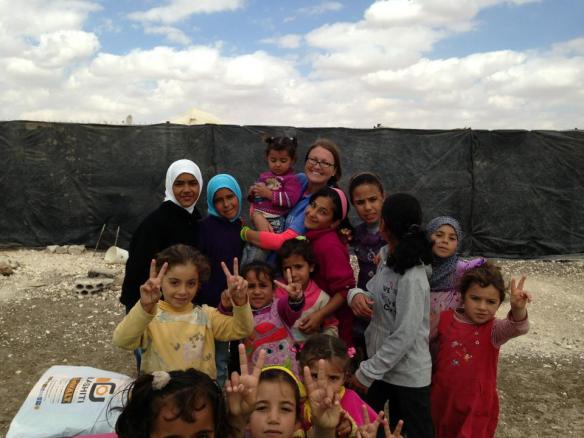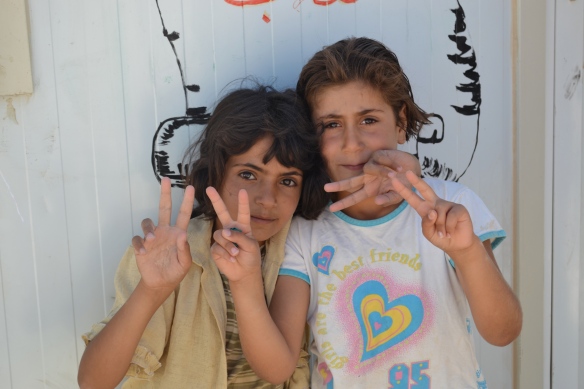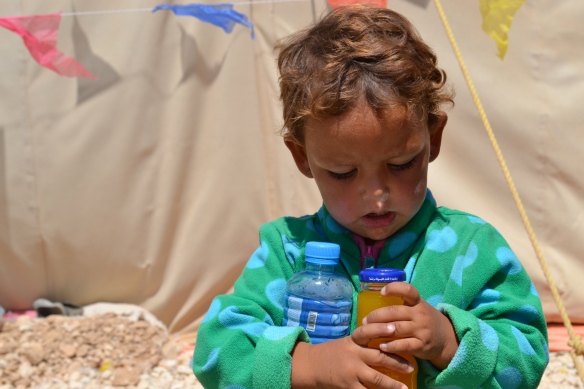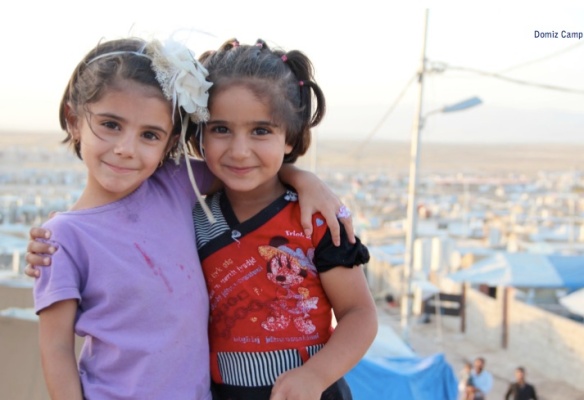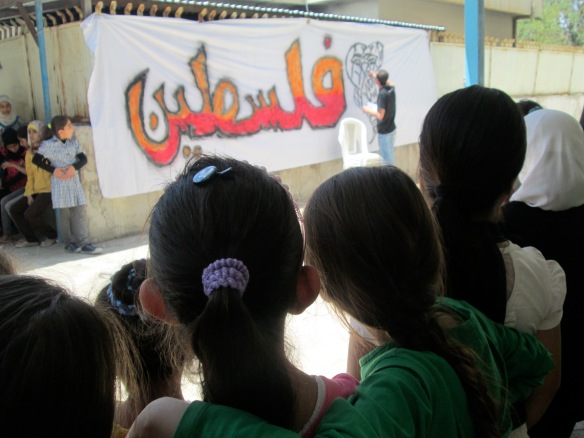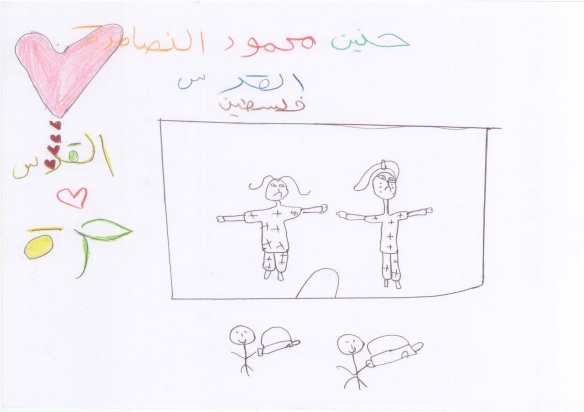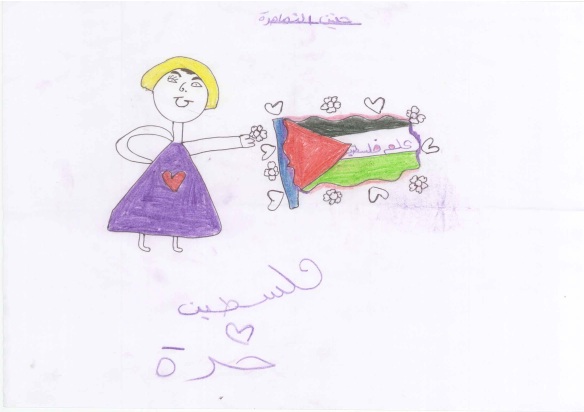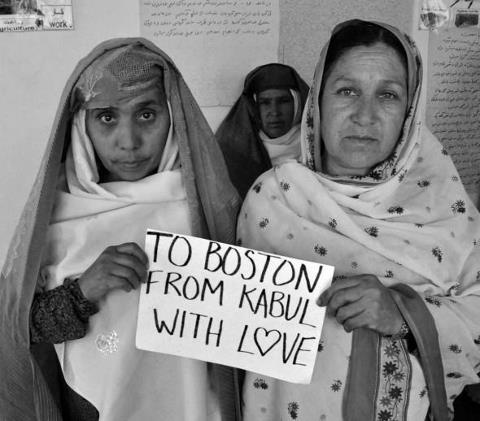This Christmas, half my family got “in your name donations”… meaning I bought winter gloves ($1 / pair) and fuzzy socks/slippers ($1.50 / pair) in Jordan for kids in Za’atari I know need them. I put this together with some photos, and it made for a touching gift.
I was discussing this with a friend, and she relayed a common sentiment: the love of donations like the above, where you see the result (50 girls got a pair of mittens and socks for the winter), and the lackluster other option, “donating to big organizations that already have so much money.”
I think this is a pretty common opinion.. and all the more frustrating because its patently false. I watched the below video — images of refugees walking across the Jordanian border, story of a paralyzed 2 year old heading with her family to live in Za’atari Camp — and was reminded again how massive the need is, the need that these “big organizations” are seeking to respond to.
UNHCR recently appealed for a record high 6.5 billion in funding to deal with the Syrian crisis. That’s a huge amount of money… but in the 4th year of this tragic war, its expected that the humanitarian community will be providing aid to 3/4ths of the Syrian population. That’s a shocking number – 3/4ths of a population in need of help.
To make it more clear, the same friend hands me a “Christmas gift” check for $120 for the kids in our programs. I am overjoyed (that’s a lot of money coming from a recent grad), and thank her, “It seems like something small, but $120 is 240 pairs of mittens.” My friend laughed, “No need to spend it all on mittens.” But the follow up response, of course, put it in perspective: there are 100,000 Syrians in Za’atari Camp.. 60,000 children… and 240 pairs means that 59,760 children – in Za’atari Camp alone – don’t receive any.
Anyway, the fact of the matter is the reason these organizations appear to “have so much money” … is because they need so much money… and then some.
Another common opinion, it seems, is that the need is so huge, what’s the use of a small donation? Again, an idea that couldn’t be farther from the truth. For one great donation idea, check out this new campaign – a partnership between Mercy Corps and a grassroots volunteer group in Jordan – We Care About Syria.
To imagine how far the money can stretch:
• $3 will provide a child with art materials and toys wrapped in a bright bag to look like a gift rather than a hand-out.
• $5 will provide a family with a hygiene package of essentials
• $15 will provide a mattress
• $30 will provide a whole kitchen cooking and eating set for a family of 6
• $35 will provide three blankets
• $100 will provide a child’s wheelchair; so many children have suffered injuries in this war
• $850 will buy a house – yes, we can buy and install a prefabricated house for a refugee family living outside of the camps in make-shift tents. A farmer has donated some land and the families in need identified.
Anyway, I suppose my other point all along has been, a drop in the ocean is still a drop.

